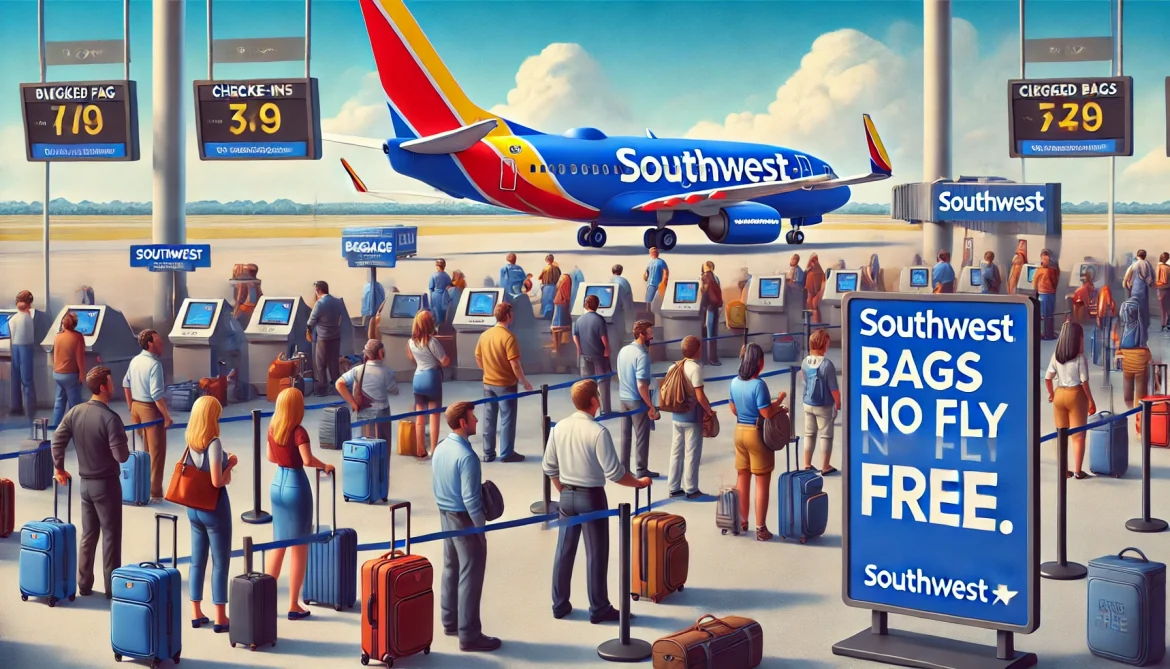Southwest Airlines, renowned for its customer-friendly policies, announces a significant shift in its baggage policy. Starting May 28, 2025, the airline will discontinue its longstanding “Bags Fly Free” policy, introducing checked baggage fees for the majority of its passengers. This marks a departure from a practice that has distinguished Southwest from its competitors for decades.
Under the new policy, only specific groups will continue to enjoy free checked bags:
- Rapid Rewards A-List Preferred Members and Business Select fare passengers: Entitled to two free checked bags.
- A-List Members and holders of certain Southwest credit cards: Eligible for one free checked bag.
All other passengers will incur fees for checked baggage. While the exact pricing has yet to be disclosed, industry analysts anticipate charges aligning with those of other major U.S. carriers, typically ranging between $35 and $40 for the first checked bag.
This change is part of a broader strategic transformation at Southwest Airlines. In July 2024, the company announced plans to transition from its unique open seating policy to assigned seating, with implementation expected by early 2026. Additionally, the airline plans to introduce premium seating options, including extra-legroom seats, and a basic economy fare to cater to a wider range of travelers.
The decision to implement baggage fees aims to enhance revenue streams and align Southwest’s policies with industry standards. However, it has sparked a wave of reactions from loyal customers and industry observers. Many frequent flyers express disappointment, viewing the free checked bags as a core component of Southwest’s appeal. Social media platforms are abuzz with debates, with some users labeling the move as the “nail in the coffin” for the airline’s distinctive customer-friendly image.
In response to the announcement, Southwest’s stock experienced an uptick, reflecting investor optimism about potential revenue growth from the new fees. However, the airline acknowledges the risk of alienating cost-sensitive travelers who may seek alternatives that still offer complimentary baggage options.
As Southwest navigates this transition, the aviation industry watches closely to assess the long-term impacts on customer loyalty and the airline’s market position. The coming months will reveal whether these strategic shifts will bolster Southwest’s profitability without eroding the brand loyalty it has cultivated over the past five decades.



